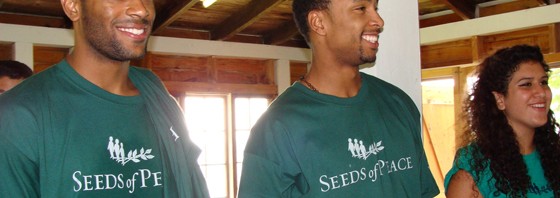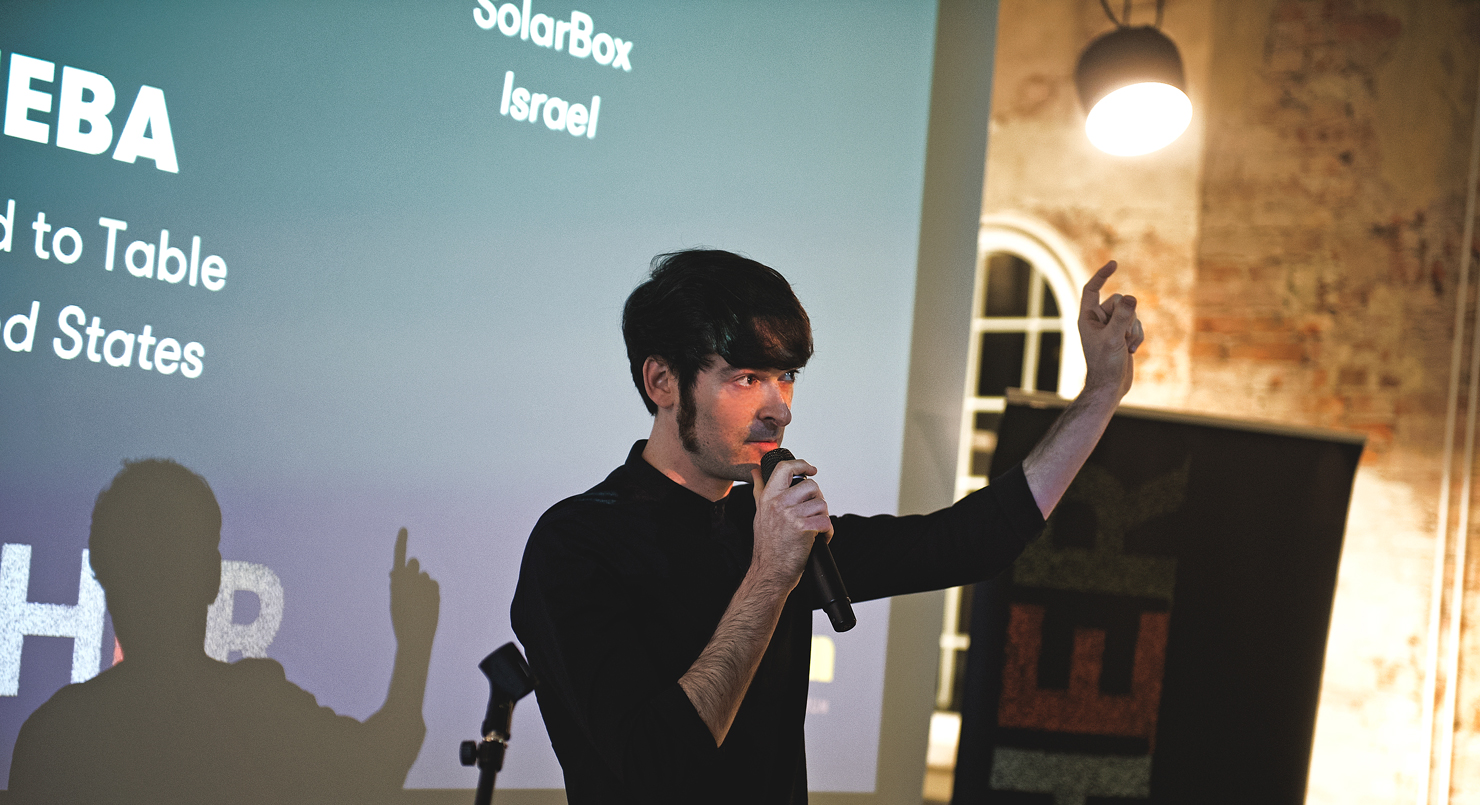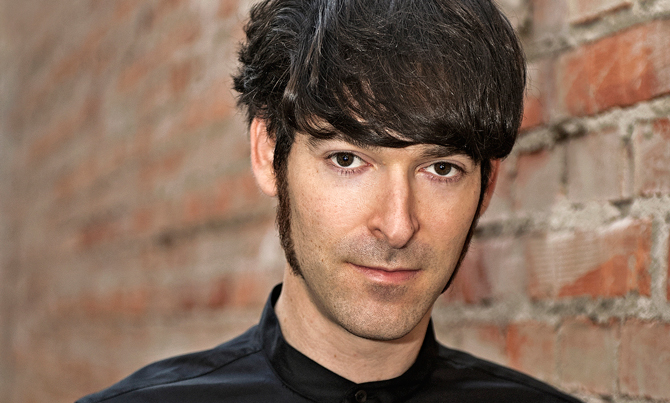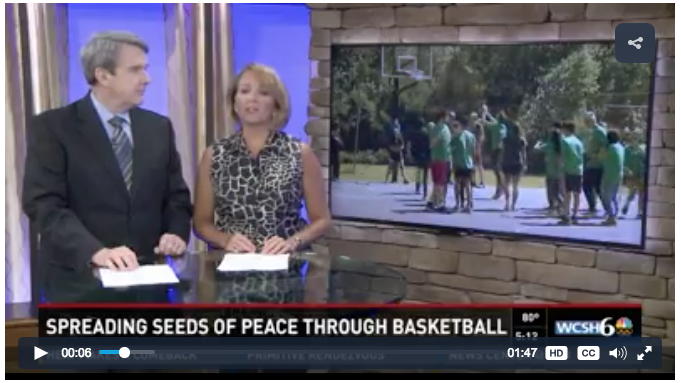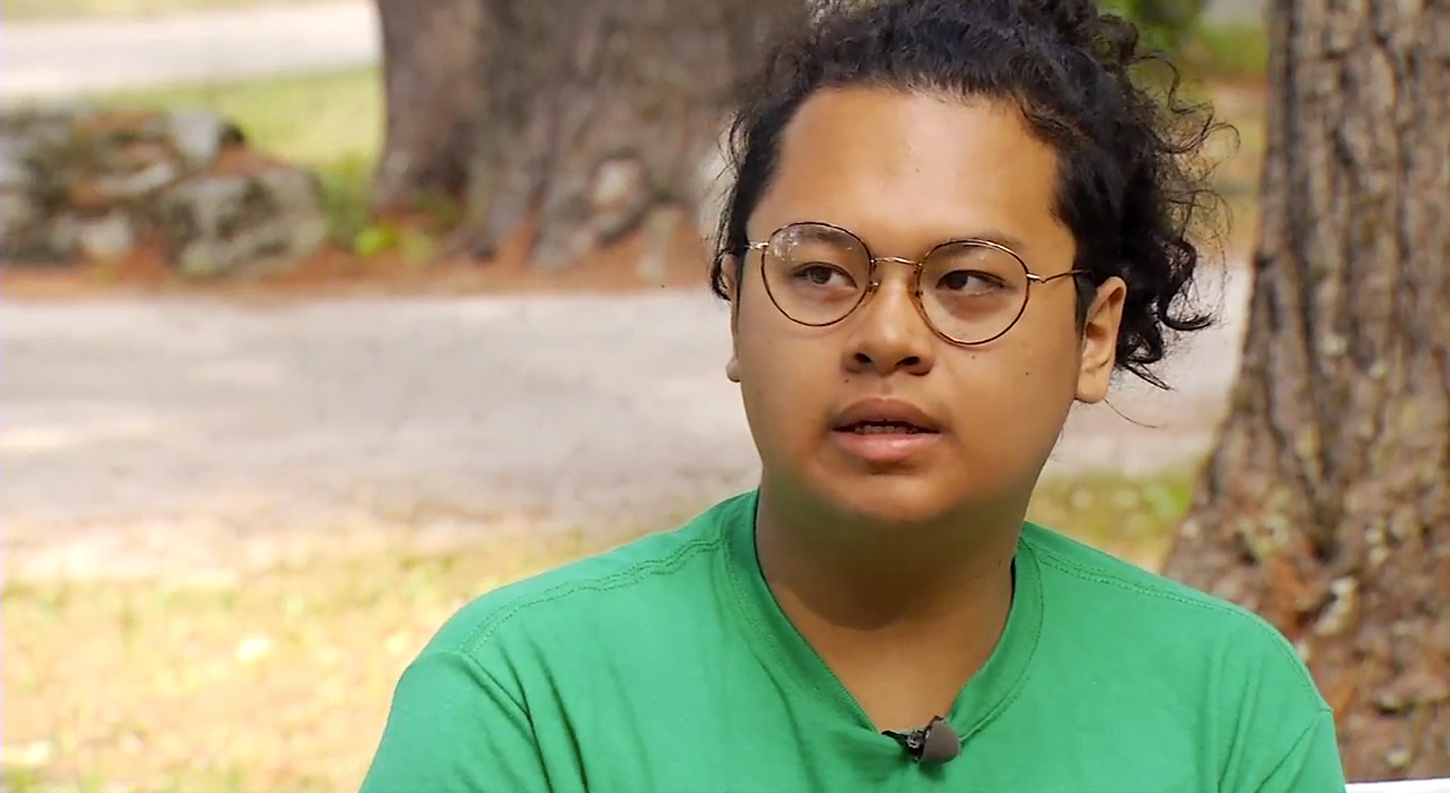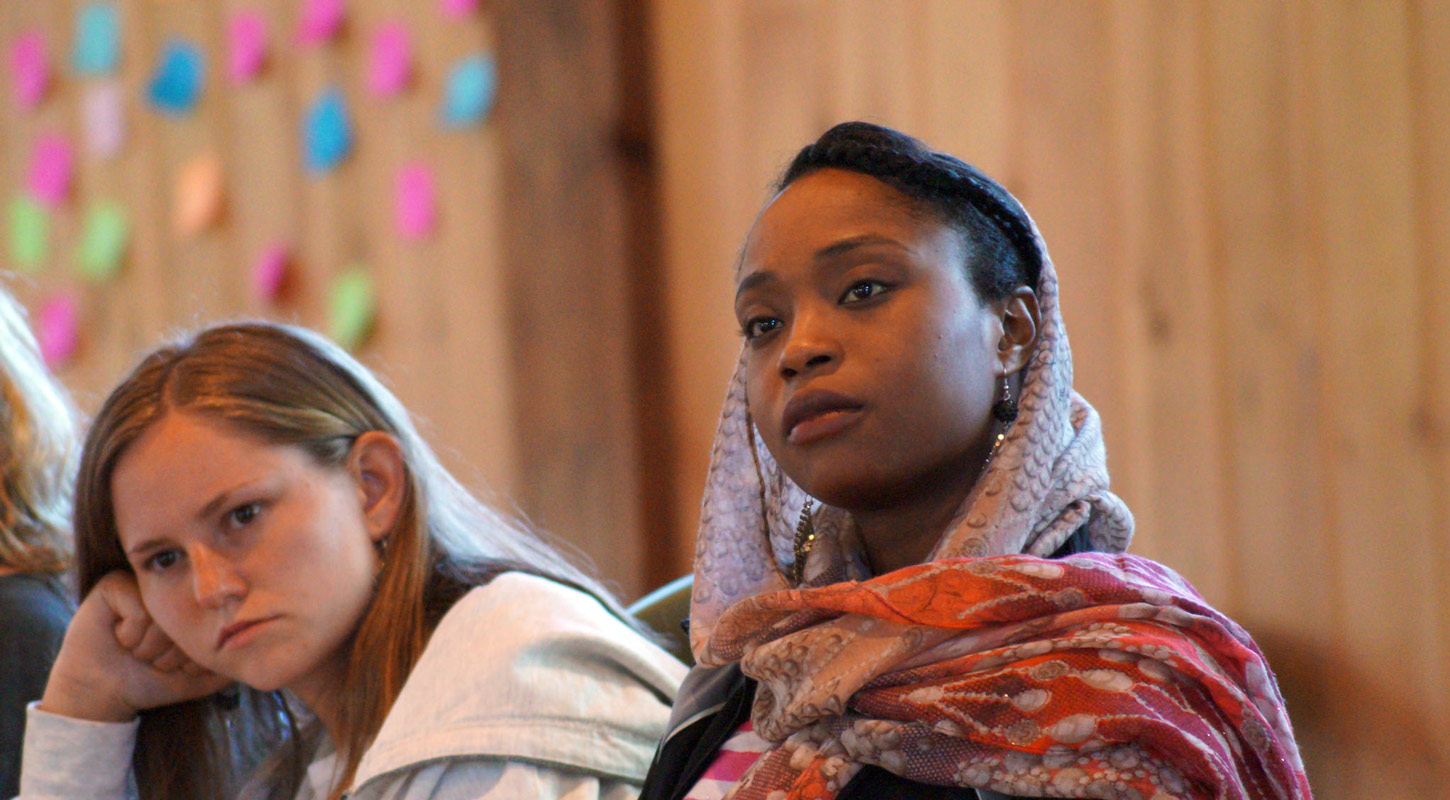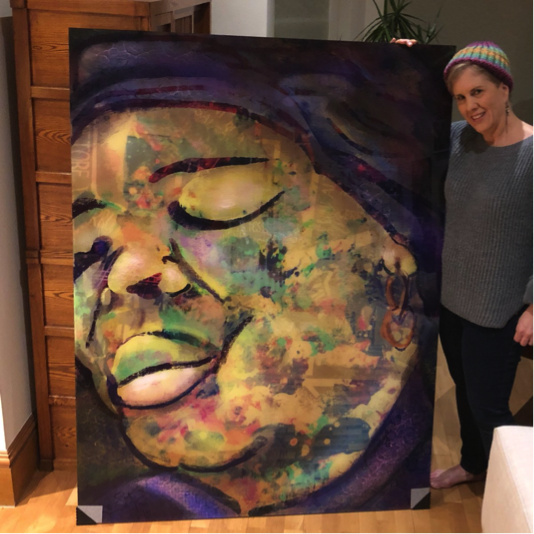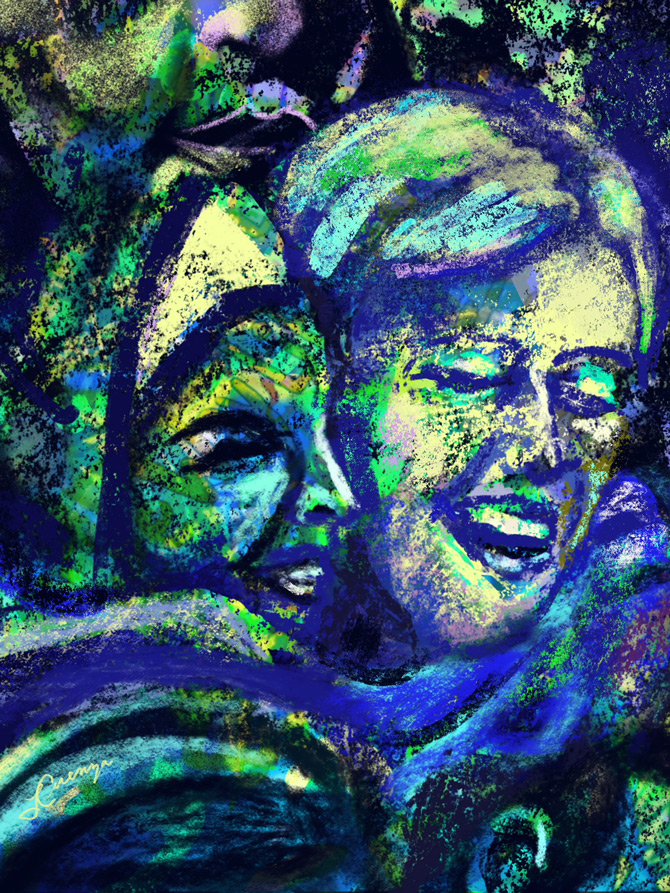The NBA offseason is a time for players to rest their bodies, to train, and to mentally prepare themselves for the long season ahead. But it is also a time for them to touch communities with which they are not able to connect during the busier half of their year.
On Friday, five current and former NBA players traveled to Southern Maine, where 182 young leaders from regions of conflict in the Middle East, South Asia, and the United States are gathered for Seeds of Peace. According to their mission statement, Seeds of Peace is a camp “dedicated to inspiring and equipping new generations of leaders from regions of conflict with the relationships, understanding, and skills needed to advance lasting peace.” The players served as guest basketball coaches during the camp’s 11th Annual Play for Peace program.
The group was led by Joel Embiid and included Sixers teammate and fellow rookie Jerami Grant, as well as Marcus Smart (Boston), Steven Adams (Thunder), and former NBA player Brian Scalabrine.
Although his recent foot surgery kept Embiid from joining the action on the court, he offered instruction and commentary from the sidelines.
EMBIID'S ALERT: THE GOAT,THE WHITE MAMBA IS OUT HERE BALLING AND IS TRYING TO MAKE A COMEBACK TO THE @nba @Scalabrine pic.twitter.com/tMLx3mtTFI
— Joel Embiid (@JoelEmbiid) August 9, 2014
My experience today with @SeedsofPeace was unforgettable! Thank you! pic.twitter.com/Yujrq6Pii2
— Jerami Grant (@JeramiGrant) August 9, 2014



